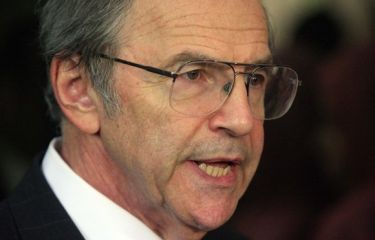U.S. diplomats on South Sudan conflict over Machar’s fate
September 8, 2016 (JUBA) – United States top envoys for South Sudan have issued conflicting statements on whether the South Sudanese former First Vice President, Riek Machar, should reclaim his position or not in the transitional government of national which was formed as a result of a peace agreement he signed with President Salva Kiir in August last year. The deal was to end 21 months of civil war.

“Given all that has happened, we do not believe it would be wise for Machar to return to his previous position in Juba,” said Booth.
“But this cannot become a justification for President Kiir to monopolize power and stifle dissenting political voices,” he told the House Foreign Affairs Committee’s Africa Subcommittee.
But Princeton N. Lyman, senior advisor to the U.S. president, described the idea to cut off Machar from the government as “illusion.” He made the remarks while testifying on the South Sudan’s situation before the House Foreign Affairs Subcommittee on Africa, Global Health, Global Human Rights and International Organization.
“It would similarly be an illusion to think that with the exile of former Vice President Riek Machar, and his replacement by Taban Deng Gai, we now have a true government of national unity that can unite the country,” Lyman said.
He said Gai who replaced Machar in a controversial process does not control the opposition forces in the country, adding that fighting is ongoing across the country.
“Taban Deng does not command the loyalty of all those forces that have been fighting the government of Salva Kiir. Without broad-based participation in a transitional government, conflict will surely continue. Indeed conflict continues now in several parts of the country,” he said.
He also warned that the conflicting messages further divide the United Nations Security Council, IGAD and the African Union, warning that with the current situation, peace will not be achieved in South Sudan.
“The UN Security Council (UNSC) is hamstrung by the divisions within IGAD and the African Union. There is a useful adage that applies here: when the Africans are divided, the UNSC will be divided. Without a strong call from IGAD or the African Union for an arms embargo or further pressures on the leaders of South Sudan, the UNSC will divide. Moreover, any arms embargo or other sanctions would have to be implemented by these same neighboring countries. If they are not so committed, even if the UNSC passed such measures, they would not be implemented,” he said.
RIVAL PARTIES REACT
Meanwhile, South Sudan government under President Salva Kiir has quickly welcomed the remarks attributed to the U.S. envoy, Booth, indicating preference for the armed opposition leader and the former first vice president, Riek Machar, to stay away from participating in unity government.
“Working relations is very important. If you are working with someone with whom you have no better working relationship then it is difficult to even convene a meeting. You cannot do anything. So it is important that our friends from the United States are showing an understanding,” presidential Advisor, Tor Deng Mawien told Sudan Tribune on Wednesday.
“We welcome these positive remarks. We are also expecting others to show similar understanding. The people of South Sudan need the world to stand with the transitional government of national unity to implement the peace agreement,” he said.
He claimed that President Kiir and his government are fully committed to implementing the agreement with the new first vice president, Taban Deng Gai, to “the spirit and letter.”
Booth’s remarks have been interpreted by government officials as clearly indicating the U.S. acceptance of Taban Deng Gai as the First Vice-President after the US secretary of state, John Kerry, said in August that Machar’s replacement was not illegal.
The opposition faction led by Machar commended the statement by the U.S. advisor to the president, Lyman, for understanding the importance of maintaining a peace partner and leader of the armed opposition, Machar, in order for peace to hold.
“Those who think replacing the main peace partner, Dr. Riek Machar, with someone who will surrender to Salva Kiir’s dictatorship and violence are admitting their failure to help change such a bad leadership. They are surrendering to the status quo. Succumbing to dictatorship, corruption and violence is a bad cooperation. It is a bad idea because tt will not do good to the people of South Sudan,” said James Gatdet Dak, spokesman for the opposition leader, Machar.
He also said Machar is in full control of the co-national army known as the SPLA in Opposition, as well as leading its political wing, the SPLM-IO.
He said removing the SPLM-IO party and the SPLA-IO army from the peace agreement and its transitional government is an admission that the peace deal has collapsed.
(ST)
